Rural broadband: Residents miss out on NI scheme
- Published
- comments
Rural broadband : Residents miss out on NI scheme
Some rural residents in Northern Ireland who suffer from poor internet access have been told they do not qualify for a £165m ultra-fast broadband scheme.
This is despite the fact that new fibre cables are passing their homes.
Project Stratum promises to deliver full-fibre broadband with speeds of up to 1 gigabit per second to 76,000 rural properties.
It is part of a major investment run by the Department for the Economy.
Anyone who lives in an area where a broadband service with a speed of 30Mbps is already available or expected to become available soon is excluded from the scheme.
Some residents who say their connection is much slower have told BBC News NI they have been unfairly left out.
Gabriel O'Connor's family lives five miles (8km) from Belleek, in County Fermanagh.
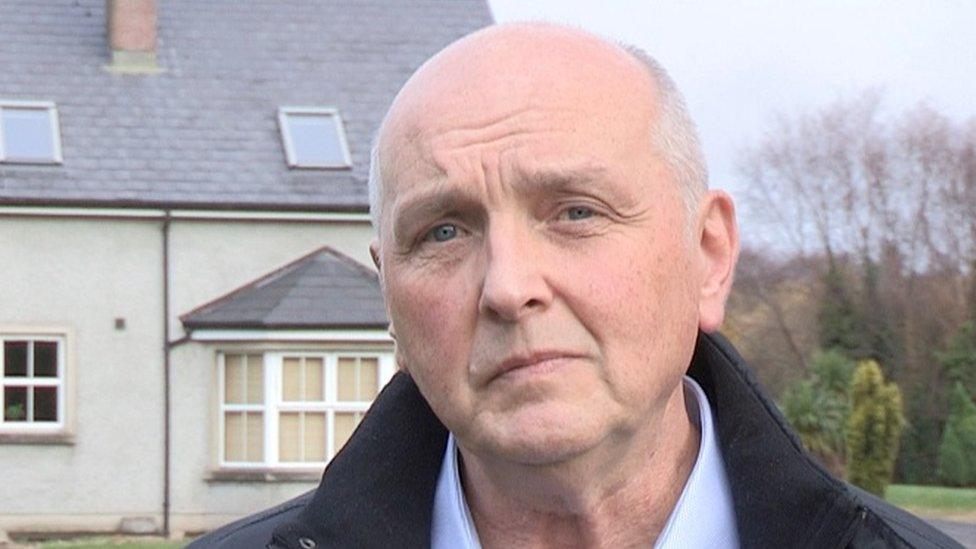
Gabriel O'Connor said peple were being excluded but derelict buildings were being included in the scheme
He said it can be "really frustrating" to access the internet.
When he entered his address into an online eligibility checker, external, he said he was "dismayed" to discover he was not included in Project Stratum even though the cable will pass his home.
"We've always struggled to get any internet connection in this area," he said.
"In the past, I've had radio broadband then I went to satellite broadband then I went to Wi-Fi broadband and in the last year I managed to actually get connected to the internet over my telephone line, but I only have a connection speed of 7Mb per second.
"This new service promised up to one gigabit, 1,000Mb, as you can appreciate at the moment I'm on seven, so if I could get 30 I'd be more than happy, that's four times what I have at the minute."
He said some of his neighbours have also been told they are excluded, while some derelict buildings in the area are currently included in the scheme.
"There were some houses where I know people are crying out for a decent broadband connection were excluded, yet they were going out of their way in some cases hundreds of metres up the lane to a derelict house that nobody has been in for 25 or 30 years."
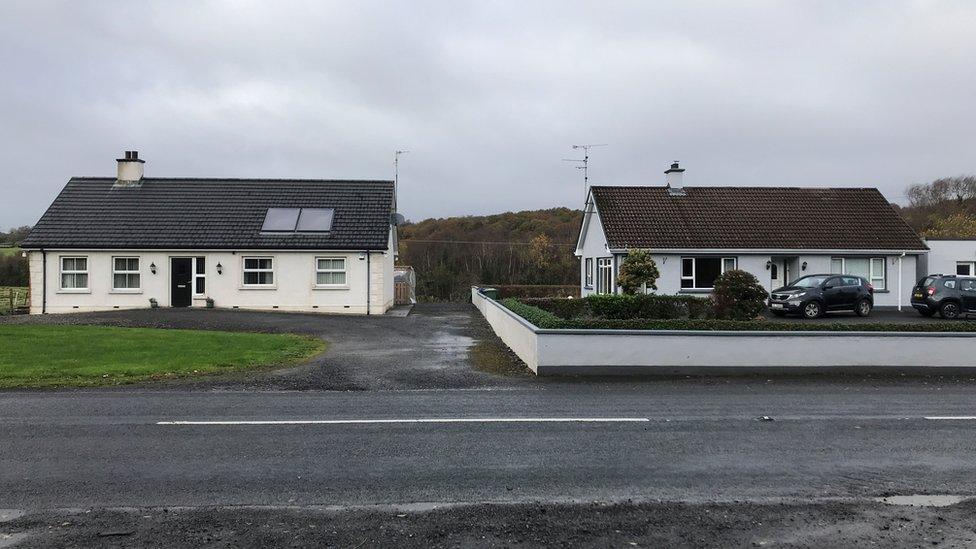
Cathal O’Connor says his house, on the left, is excluded while his father’s home, on the right, is included
He has sent emails to the Department for the Economy to challenge the eligibility criteria being used for his property without success.
It is the same story for his cousin, Cathal O'Connor, who lives further along the road.
A small antenna on his roof provides a wireless internet service, but the connection speed can be slow, especially when his family are using multiple devices.
He was also hoping to benefit from what he says is a "fantastic project" but he is concerned that some people are being left out of this "very essential service", particularly children who need to study remotely.
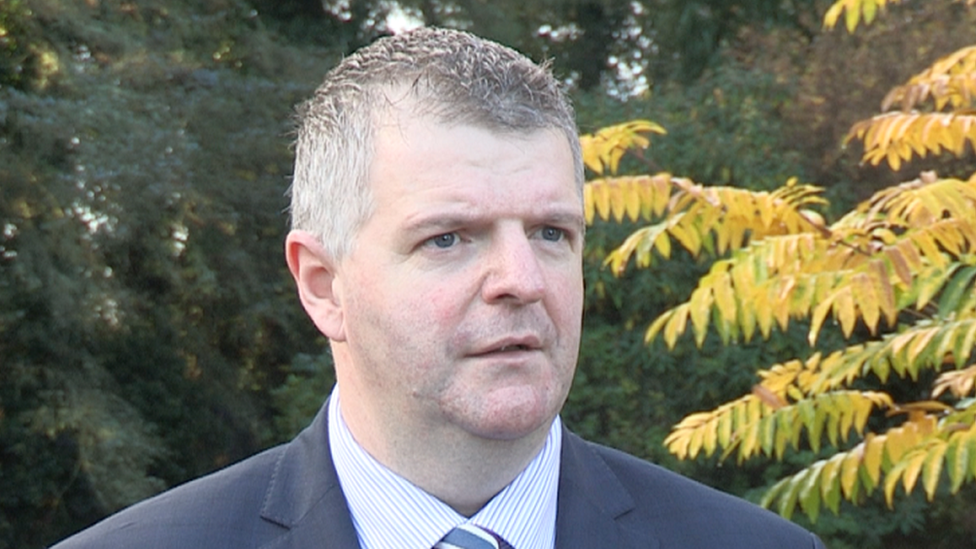
Cathal O'Connor said he was disappointed to not be able to access the scheme
"I was quite surprised to see that our home wasn't eligible for this new hyper-fast broadband service, but I was even more surprised when I discovered that my father's house just next door was eligible for the service.
"It's very disappointing to see that when you have a service literally passing your doorstep you can't access it and I think it's not an uncommon story across rural communities whereby some households seem to be left out of this project."
'Transformational'
The Department for the Economy told BBC News NI that Project Stratum was a "transformational project".
As a result, more than 99% of all premises in County Fermanagh and Omagh, in County Tyrone, will have access to Next Generation Access (NGA) broadband, capable of delivering speeds of 30Mbps or more.
It said premises were considered as eligible for public intervention under Project Stratum if current or planned broadband services were not capable of delivering speeds of 30Mbps or higher.
Information on connection speeds were provided by network operators and some premises were being kept "under review" to "test the robustness of claimed NGA broadband services".
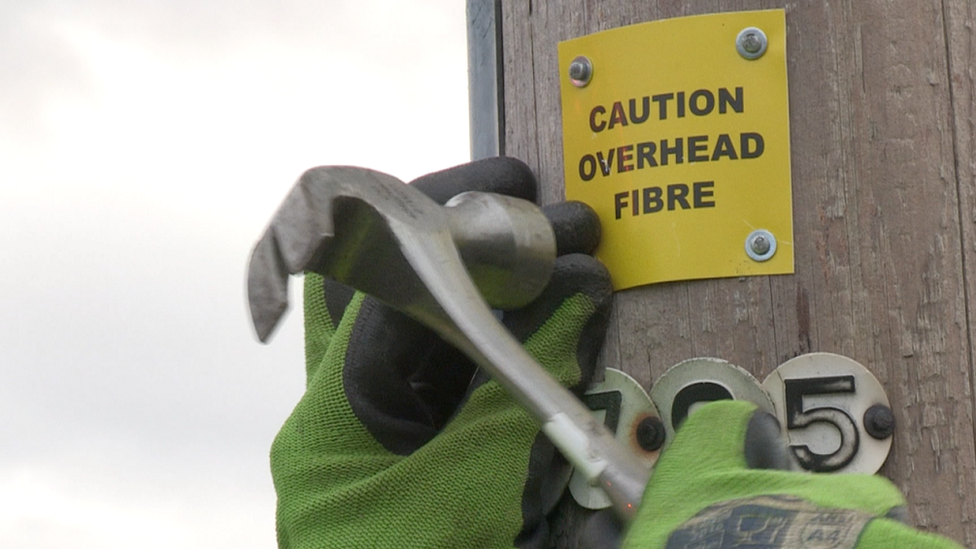
The review is being completed by independent specialist telecommunications consultants.
If they are not capable of receiving such services, the department "will consider bringing these premises in plans for existing or future public intervention, subject to funding considerations".
If anyone has previously benefited from public funding, such as a Better Broadband Voucher, they are also not eligible under state aid rules, it said.
With regards to derelict properties, the department said such premises will be "de-scoped" during the deployment phase to ensure public funds are allocated appropriately.
Fibrus, the company which has the contract to deliver Project Stratum, is currently installing fibre broadband cables across County Fermanagh.
Premises not currently included in Project Stratum can be considered for connection during the network rollout if the infrastructure is passing close by and it is considered by the contractor to be commercially viable.
But Mr O'Connor said Fibrus told him there was "no network infrastructure capacity" to connect his home, even though the nearest pole carrying the cable is just 25m away.
"I've noticed that all the villages are being offered connection where they already had what's deemed to be broadband, yet they don't seem to have the infrastructure to connect me which seems a bit strange.
"Project Stratum is costing the public £165m, that's a lot of money.
"I think that it should be delivering the service to people who need it most."
Related topics
- Published17 June 2021
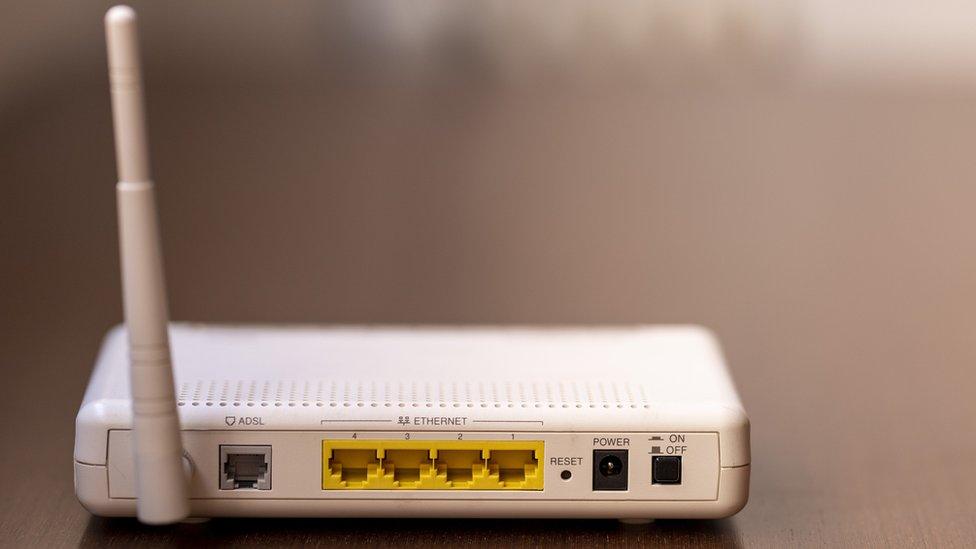
- Published24 August 2021
